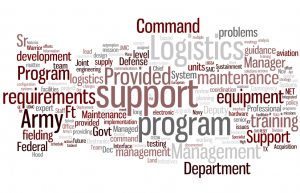The simple answer is yes. Scripting the answers to questions ahead of time gives you the opportunity to think through the answers more thoroughly. You can work on your answers and try different things.
What Questions Should I Prepare For?
When I work with someone to improve their interviewing, I usually pick out questions that are most likely to be asked in the types of interviews they will have. I also try to ask questions that get to the heart of their weaknesses. I don’t do this to be mean; I just want them prepared for these questions.
Hopefully, you have an idea of the types of interviews you can expect in your field. If you don’t, work on a wide range of questions, or research the industry until you have a better idea.
Then, script as many questions as you can.
But If I Write My Answers Out, Won’t It Sound Canned?
That’s true only if you try to memorize the answers. I don’t recommend memorizing answers. This can make it very difficult to adapt to unforeseen questions. The reason you want to script your answers is to get an idea of what works and what doesn’t.
Have you ever been talking with someone and ended up on a tangent that went in a direction you really wish you had avoided? I know I have. Having an idea of what the concepts you want to emphasize can help keep you on track.
Early in my career, I made a lot of mistakes interviewing. I can remember getting a lot of the same questions over and over. Every now and then, I would try answering a different way. Usually, this didn’t work out well, and I would know as I was finishing the answer “that was a mistake – better not use that story again.”
It’s a lot better to practice when it doesn’t count, instead of waiting to experiment in an important interview.
Should I Write Out The Entire Answer?
For the few answers you script, yes. Get a few answers on paper and get comfortable with preparing this way. Then, practice by answering out load and rehearse a lot of questions. Pay attention to where you get hung up. Revise it and keep reading it until it’s smooth.
When you get into the interview, just relax and create your answers as you go. Don’t worry about remembering any of the answers that you wrote. You will naturally develop answers that are similar to your practice. Even though you will never use any of the answers you scripted verbatim in an interview, you will remember the practice and, you will be more confident.
How To Practice
Once you have rehearsed a bit, find someone to do a practice interview with you. The interviewer should be someone you respect, and ideally, someone you don’t know very well. You want to simulate a real interview as much as possible. Unfortunately, a close friend can’t do this for you. A friend or family member won’t be able to create the same level of tension that exists in most interviews. The best interviewer for a practice interview will also have a lot of experience interviewing and be able to critique you relative to other job seekers.
If you can’t find someone that can help you prepare, get a practice interview from an interview coach. If you do this, you will not only be less likely to make a mistake in an interview, but you will also be more comfortable and confident with your interviewing.
